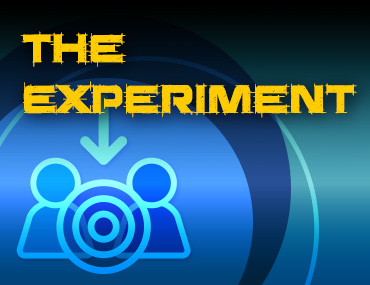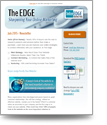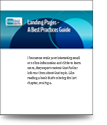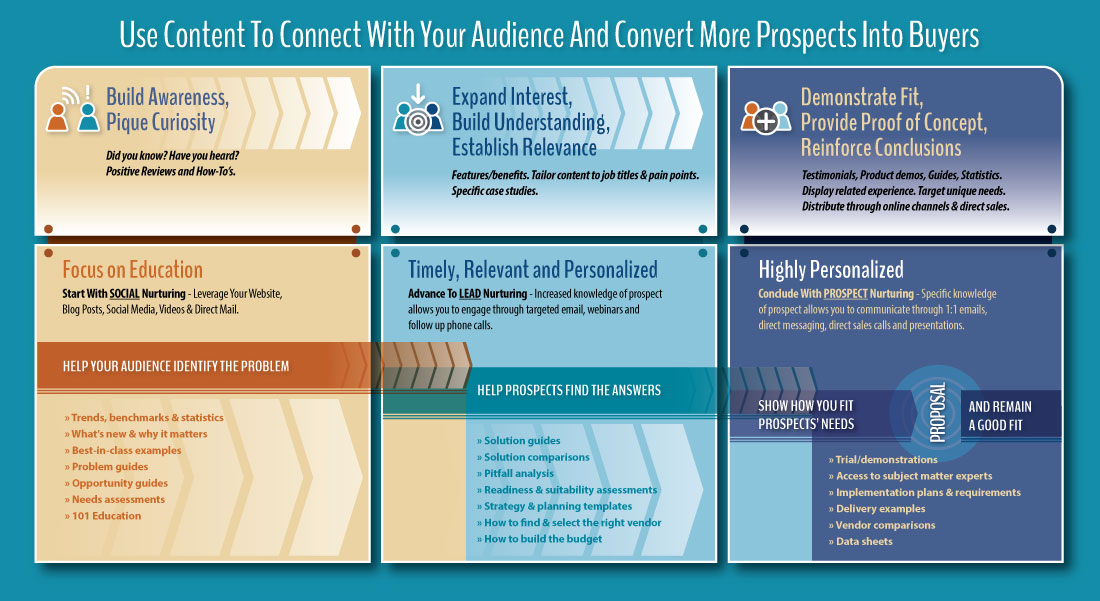
Trade shows aren’t cheap. And neither are other lead generation programs. So why do companies spend the money to generate leads but fail to follow up effectively? It lowers your return on investment and irritates prospects.
In reality, ineffective follow up falls into three categories: 1) None 2) Untimely 3) Over aggressive
In today’s wired world, lead generation programs are crucial. Traditional prospecting methods are inefficient and bring little value. For example, it takes 100 cold call attempts to make just one appointment! But, a lead generation program without a defined and thoughtful follow-up process isn’t much better. It’s like letting food sit for weeks in your refrigerator. Food spoils and so do leads. The consequence, you waste money.
So, I decided to conduct an experiment. I attended Print 18 to take part in educational sessions and meet associates. But also, to dig into the lead follow-up programs of 20 exhibitors.
I selected the exhibitors based on the following criteria:
- Three companies had a solution that I thought could fit my specific need. If it did fit, I had an expected 6 - 12 month purchasing time frame
- Twelve companies had capabilities I wanted to learn more about but, I didn’t have a purchasing need
- And for the other five, I knew associates who worked for the company
Given that only three of 20 visits included specific purchase intentions, I didn’t expect 20 follow ups. But regardless, nearly two weeks after my visit, here are the results:
- Email Follow Ups - 7
- Print Follow Ups - 1
- Phone Call Follow Ups - 3
- No Follow Up - 9
Don't You Want My Business?
I had a genuine need in three of my booth visits, a need that became clear during my discussions. However, only one of those three companies followed up. Did they lose my contact info? Were they turned off by my 6 - 12 month purchase expectation? Whatever the reason, it’s unlikely that I’ll consider either company in the future.
At a tradeshow, less than 10% of booth visitors have a purchase intent of less than three months. Conversely, 50 - 60% will make a purchase within 24 months. If you make no effort to stay connected with these prospects, you lose the revenue from that sale. And, in addition, the potential to expand the relationship.
Furthermore, it’s not just trade shows. If you generate a marketing qualified lead through your website or other tactics, and don’t follow up, you can expect the same negative outcome.
I'm Not A Prospect!
As part of the follow up process, three companies picked up the phone and called me. Two of the calls came from the group that had capabilities I wanted to learn more about. You know, the companies where I made it clear I wasn’t a prospect and had no need to purchase!
Both companies followed up with a pitch, aggressively trying to set up a follow up appointment.
How did the clearly defined “not a buyer” category translate into a pushy follow up call? In addition to annoying, it’s a complete waste of time and money. Are your goals completely misaligned? Is scheduling appointments more important than targeting the right prospect with whom to set an appointment with?
Avoid This Flaw
Or maybe their follow-up process includes turning all inquiries over to sales. If that’s true, they will quickly turn both sales and prospects off from their lead program.
When you repeatedly feed a sales rep “leads” that turn into time wasters, the rep quickly starts to avoid all follow up. Unfortunately, they also avoid the opportunities that could turn into sales.
In addition, when you understand and market to the needs of prospects, you’ll create a better experience. One that is more likely to lead to future business.
Do This Instead
Work together with sales to define a marketing qualified lead. For example, does it fit into the industry, company size, geographic location and buyer type that you typically target? And, have they exhibited the buying behaviors that you expect? At a trade show you determine the buying behavior from one-to-one interaction. On your website, behaviors such as downloading white papers or measuring the time a prospect spends on your website may indicate a purchasing interest.
In my case I clearly made the company aware that I wasn’t a buyer. As a result, it should have knocked me out of the appointment setting follow-up. Establishing the guidelines and providing your sales team with prospects that only meet that criteria will improve the outcome for your prospects and your company.
A Few Nice Surprises
A few companies clearly had spent time developing effective lead follow-up programs.
One company, that I had expressed a buying interest with, provided the information I needed. In addition, they included examples of how their solution would provide benefits in areas I hadn’t considered. Later, they called to make sure I received the information and learned more about my needs. We have an additional discussion planned for November.
Unless this takes an unexpected about face, it’s likely I’ll make a purchase next year.
In addition, a company that had capabilities I wanted to learn more about, but no purchasing need, sent a personalized follow-up which included these lines:
They clearly understood that I wasn’t a buyer but could be an influencer. They presented their brand in a positive way and made it easy for me to forward information to associates that may have an interest or need. That’s smart follow-up.
Even Print!
And lastly, from another company, I received a postcard that contained a QR code linking to more information on their website. Digital communications are an essential part of any lead generation program but this print piece stood out.
Lead Generation Programs
Do you have lead generation programs that result in a few or a few thousand opportunities each month? If so, you need to develop a process that drives effective follow up. When you do, it makes your sales force more productive, connects with prospects and drives additional revenue for your business.
InterEdge Marketing develops lead generation programs that maximize return on investment.
Learn more about our capabilities.



 Insight Delivered Directly to You Interesting topics, great offers and free marketing tools.
Insight Delivered Directly to You Interesting topics, great offers and free marketing tools.

